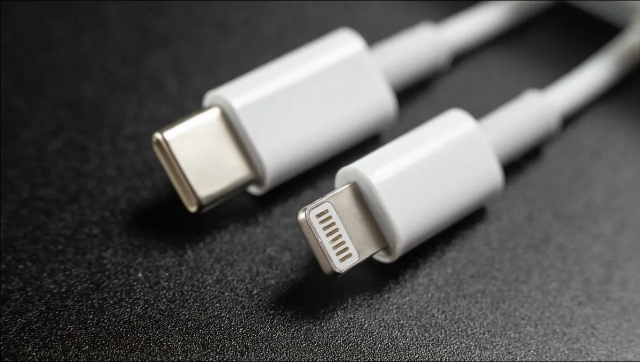The European Parliament decisively agreed on Tuesday (October 4) to require tech firms to provide a USB-C charger and port on all of their gadgets by the fall of 2024. The law, the first of its sort elsewhere in the world, will make the USB-C ports used by Android-based smartphones standard across the EU’s 27-nation bloc, affecting Apple Inc., the creator of the iPhone in particular.

A total of 602 MPs voted in favour of the plan, which was tentatively agreed upon in June by the European Commission and EU member nations. Thirteen European Parliament members voted no, while eight abstained. The measure, which still requires approval from EU member states, is expected to become law at the start of next year.
The European Commission recommended USB-C as a standard charging connector in October 2021, allowing users to charge their devices with the same USB-C charger regardless of device manufacturer. It also suggested decoupling the selling of chargers from the sale of electronic gadgets in order to reduce the number of “unwanted chargers” purchased or left unused.
According to the European Commission, the average EU consumer has three mobile phone chargers, of which two are used on a regular basis. Despite this, 38% of users said they had encountered troubles at least once. They said they couldn’t charge their phones since the chargers offered were incompatible.
Margrethe Vestager, Executive Vice President of the European Commission, told the European Parliament that the “single charger will ease Europeans’ life…
There will be no more old chargers collecting up in drawers, saving European citizens money.”
According to the Commission, consumers spend around €2.4 billion each year on standalone chargers that do not come with electronic gadgets.
The law also aims to limit electronic waste.
The new regulations will compel iPhone manufacturer Apple to include USB-C connectors on its devices. Given the significance Apple places on consistency in its manufacturing lines for markets all over the world, this may potentially lead to Apple devices being updated for other countries as well.
It is worth noting, though, that Apple has been moving away from the lightning cable over the years. It has already implemented USB-C charging connectors on MacBooks and iPads.
Furthermore, it is rumoured that Apple is working on a port-less iPhone that will only be charged via a wireless charger.
Apple first expressed concern that the proposed standardisation would impede innovation.











